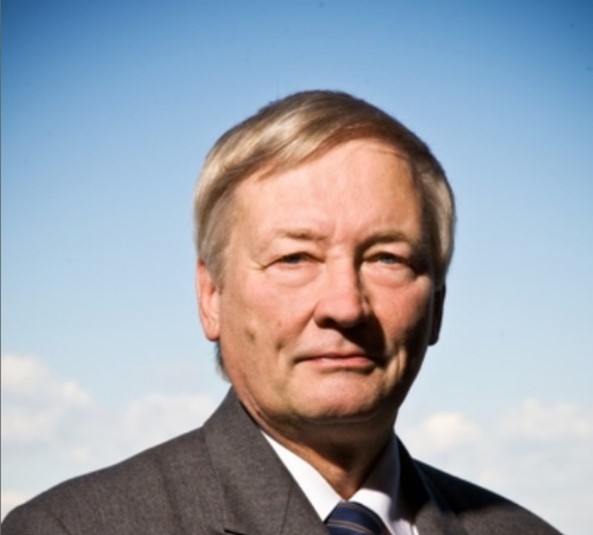Lauri Niinistö in Memoriam
Emeritus Professor Lauri Niinistö died at the end of February at the age of 82 after a long illness. He was a long-time professor of inorganic chemistry at the Helsinki University of Technology.
Lauri Niinistö was born in Helsinki on the first day of October 1941. He graduated in 1961 from Apollo Coeducational School and then began studying chemistry at Helsinki University of Technology, where he got his master's degree in 1968, licentiate degree in 1971 and Doctor of Science (Tech) in 1973. After obtaining his doctorate, Niinistö was substituting the positions of Associate Professor and Professor at the Laboratory of Inorganic and Analytical Chemistry at the Helsinki University of Technology until he was appointed Professor of Inorganic Chemistry in 1977, at the age of 36, succeeding Professor Olavi Erämetsä. Niinistö retired from this post in 2007.
In his doctoral thesis, Niinistö studied the chemistry of rare earth sulphates. X-ray crystallography and thermal analysis were already important research tools at that time. In the following decade, the field of research expanded further with the start of ALD (atomic layer deposition) thin film research in his laboratory in 1981 and, by the end of the decade, high-temperature superconductors. The study of ALD processes was ground-breaking and laid the foundation for ALD's current status as a key technology in microelectronics.
Niinistö's strong influence was also evident in the development of the research environment and researcher training. For decades, most of the inorganic chemistry professors appointed to Finnish universities came from his laboratory. Niinistö was also very active in publishing high quality scientific papers, with over 400 international articles in his long list of publications.
Lauri Niinistö's career was strongly international from the start. He was already an exchange student in the USA during upper secondary school, did a significant part of his doctorate work at Stockholm University, and spent extended research leaves in Paris (CNRS 1976), at the Vienna University of Technology (1981–82) and the University of Florida (1985–86), later again in Vienna, at the Budapest University of Technology and at the Max-Planck Institute in Halle.
He was also very active in many chemical organisations, the Finnish Chemical Society and the Association of Finnish Chemical Societies. Most notable of the many international roles were various leadership positions in the Federation of European Chemical Sciences (FECS) in the 1980s and 90s, particularly the presidency of the organisation in 1994-99. Besides these, he was involved in the International Confederation for Thermal Analysis and Calorimetry (ICTAC) being active especially in the Education Committee.
Niinistö's international outlook and language skills were also strongly reflected in his many contacts with our neighbouring countries. An important part of the Nordic cooperation was the joint chemical journal, Acta Chemica Scandinavica, of which he served on the board and as editor-in-chief throughout the 1990s. He also acted as the member of the editorial board of Journal of Thermal Analysis and Calorimetry (JTAC) for several years.
Niinistö also took care of scientists from Finland's related nations, especially Estonia and Hungary, and provided them with chemistry literature, which was otherwise less accessible to them at the time. In recognition of his outstanding scientific achievements, Niinistö was awarded honorary doctorates from the Tallinn and Budapest Universities of Technology. International cooperation also took place at Otaniemi, to which Niinistö invited numerous foreign visitors as early as the 1970s, when researcher visits were not yet common. Another way of internationalising researchers at a time when resources for conference travel for young researchers were scarce was to organise international conferences in Finland.
Lauri Niinistö was a broad-minded and thoughtful person, and he was asked to take on a wide range of positions of trust, both in his own university's administration and in several foundations. For example, Niinistö was Chairman of the Board of the Alfred Kordelin Foundation from 1999 to 2004. He was invited to become a member of the Finnish Academy of Science and the Finnish Academy of Technology in 1982. He was also an honorary member of the Estonian, Austrian and Romanian chemical societies. He also received numerous national and international awards and other honours.
Niinistö was broadly educated and interested in a wide range of issues. A big interest was history, especially the history of chemistry. He collected historical chemistry books, and the collection grew to be unique in Finland.
Education and training were also important values for the Niinistö family, wife Leena and their three children, Sini, Jussi and Jaakko; as an example of the respect for of academic values, all members of the family continued their studies up to doctoral level. In their free time, the summer house in Joutsa was a particularly important gathering place for the family, as well as a place to meet friends and professional guests. Similarly, skiing trips to Lapland were part of every winter.
We remember Lauri Niinistö as a knowledgeable teacher and a pleasant colleague. We are grateful for the vision and drive with which he supported and promoted our entire chemical research community over several decades.
The original text published by Aalto University (https://www.aalto.fi/en/news/lauri-niinisto-in-memoriam) has been written by prof. Markku Leskelä (University of Helsinki) and prof. Maarit Karppinen (Aalto University).
The text has been modified by prof. Vesa-Pekka Lehto (University of Eastern Finland) regarding details related to JTAC and ICTAC. JTAC published a tribute to Prof. Niinistö on the occasion of his 70th birthday (https://link.springer.com/article/10.1007/s10973-011-1678-3).
